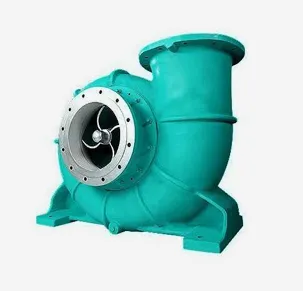Slovak
- Afrikaans
- Albanian
- Amharic
- Arabic
- Armenian
- Azerbaijani
- Basque
- Belarusian
- Bengali
- Bosnian
- Bulgarian
- Catalan
- Cebuano
- Corsican
- Croatian
- Czech
- Danish
- Dutch
- English
- Esperanto
- Estonian
- Finnish
- French
- Frisian
- Galician
- Georgian
- German
- Greek
- Gujarati
- Haitian Creole
- hausa
- hawaiian
- Hebrew
- Hindi
- Miao
- Hungarian
- Icelandic
- igbo
- Indonesian
- irish
- Italian
- Japanese
- Javanese
- Kannada
- kazakh
- Khmer
- Rwandese
- Korean
- Kurdish
- Kyrgyz
- Lao
- Latin
- Latvian
- Lithuanian
- Luxembourgish
- Macedonian
- Malgashi
- Malay
- Malayalam
- Maltese
- Maori
- Marathi
- Mongolian
- Myanmar
- Nepali
- Norwegian
- Norwegian
- Occitan
- Pashto
- Persian
- Polish
- Portuguese
- Punjabi
- Romanian
- Russian
- Samoan
- Scottish Gaelic
- Serbian
- Sesotho
- Shona
- Sindhi
- Sinhala
- Slovak
- Slovenian
- Somali
- Spanish
- Sundanese
- Swahili
- Swedish
- Tagalog
- Tajik
- Tamil
- Tatar
- Telugu
- Thai
- Turkish
- Turkmen
- Ukrainian
- Urdu
- Uighur
- Uzbek
- Vietnamese
- Welsh
- Bantu
- Yiddish
- Yoruba
- Zulu
Telephone: +86 13120555503
Email: frank@cypump.com
dec . 26, 2024 04:36 Back to list
Efficient Solutions for Pumping Sewage Slurry and Mud in Industrial Applications
The Importance of Sewage Slurry Mud Pumps in Waste Management
In the realm of waste management, the efficient handling of sewage, slurry, and mud plays a pivotal role in maintaining environmental integrity and public health. Sewage slurry mud pumps are specialized pumping systems designed to transport heavy and viscous materials, including sludge, slurry, and various waste products. These pumps are essential in a myriad of applications, from municipal wastewater treatment to industrial waste disposal, ensuring that effluents are managed effectively.
Understanding Sewage Slurry Mud Pumps
Sewage slurry mud pumps are specifically engineered to deal with challenging materials that can be abrasive, viscous, or contain solid particles. These pumps are typically constructed from robust materials to withstand the harsh conditions of wastewater environments. They come in various types, including centrifugal pumps, diaphragm pumps, and vortex pumps, each suited to different applications depending on the characteristics of the slurry.
Centrifugal sewage pumps are widely utilized due to their efficiency in moving large volumes of water mixed with solid particles. They operate based on the principle of centrifugal force, drawing the slurry into the pump and ejecting it through the discharge pipe. Diaphragm pumps, on the other hand, offer the advantage of handling thicker slurries and can effectively manage the transport of sticky or viscous materials without clogging.
Applications and Benefits
The applications of sewage slurry mud pumps are vast and varied. In municipal wastewater treatment plants, these pumps are crucial for transporting raw sewage from collection points to treatment facilities. Once at the plant, the sewage undergoes treatment to remove harmful substances before being released back into the environment. The efficiency of slurry pumps in this context is essential for preventing overflow and contamination.
sewage slurry mud pump

In industrial settings, these pumps are employed to handle waste byproducts from manufacturing processes, such as food processing or mining. They facilitate the removal of sludge from settling tanks, helping to maintain the operational efficiency of the facilities. Additionally, the ability of these pumps to handle abrasive materials makes them suitable for environments where other pumps might fail, thus reducing maintenance costs and downtime.
Environmental Impact and Technological Advancements
As environmental regulations become more stringent, the role of sewage slurry mud pumps has gained even greater importance. Effective waste management is crucial for protecting water sources and ensuring that communities have access to clean water. Innovative technologies are being integrated into mud pumps, enhancing their performance, reliability, and energy efficiency. For instance, advancements in sensor technology allow for real-time monitoring of pump performance, enabling preventive maintenance and reducing the risk of failures.
Moreover, the development of automated systems and smart pumps is transforming how sewage is managed. These systems can adapt to varying conditions, optimizing the flow rate and energy consumption based on real-time data. Consequently, the modernization of sewage slurry mud pumps not only improves efficiency but also contributes to sustainable waste management practices.
Conclusion
In conclusion, sewage slurry mud pumps are an indispensable component of today’s waste management systems. Their robust design and versatile applications ensure that municipalities and industries can effectively manage sewage and slurry, reducing environmental impact and safeguarding public health. As technology continues to evolve, these pumps will likely become even more efficient and integral to the global effort of creating a cleaner, safer environment. With ongoing innovations and a commitment to sustainable practices, sewage slurry mud pumps will play a crucial role in the future of waste management.
-
Reliable Non-Clog Sewage Pumps with GPT-4-Turbo Tech
NewsAug.04,2025
-
High-Performance Air Pumps for Sand & Gravel | Efficient Transport
NewsAug.03,2025
-
ISG Series Vertical Pipeline Pump - Chi Yuan Pumps Co., LTD.|Energy Efficiency, Corrosion Resistance
NewsAug.03,2025
-
ISG Series Pipeline Pump - Chi Yuan Pumps | Energy Efficiency&Compact Design
NewsAug.03,2025
-
ISG Series Vertical Pipeline Pump - Chi Yuan Pumps Co., LTD.|High Efficiency, Low Noise, Durable
NewsAug.02,2025
-
ISG Series Vertical Pipeline Pump - Chi Yuan Pumps | High Efficiency, Low Noise
NewsAug.02,2025










